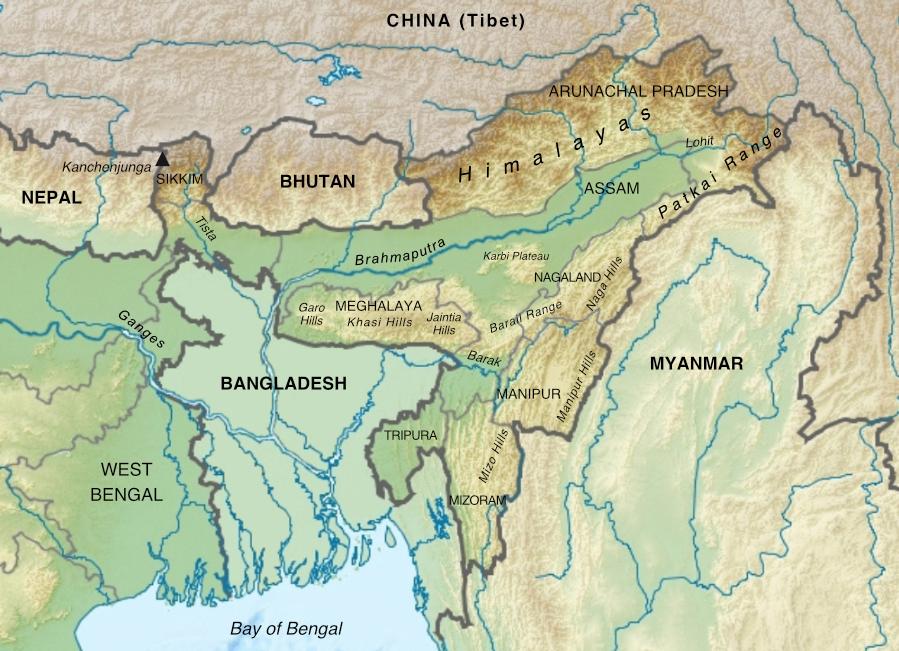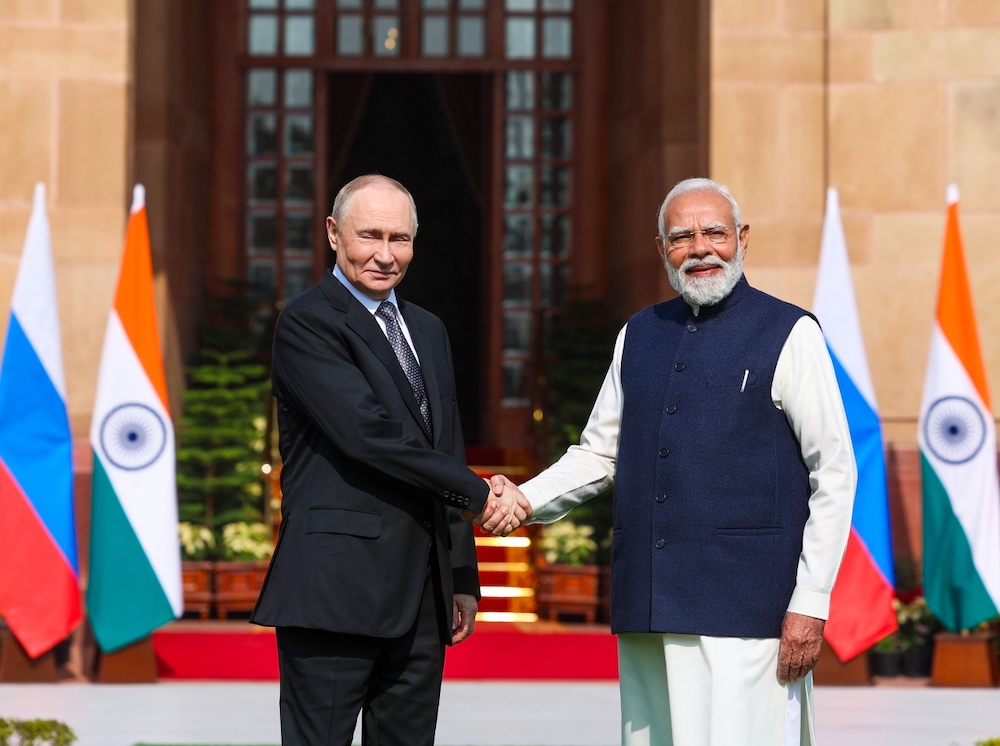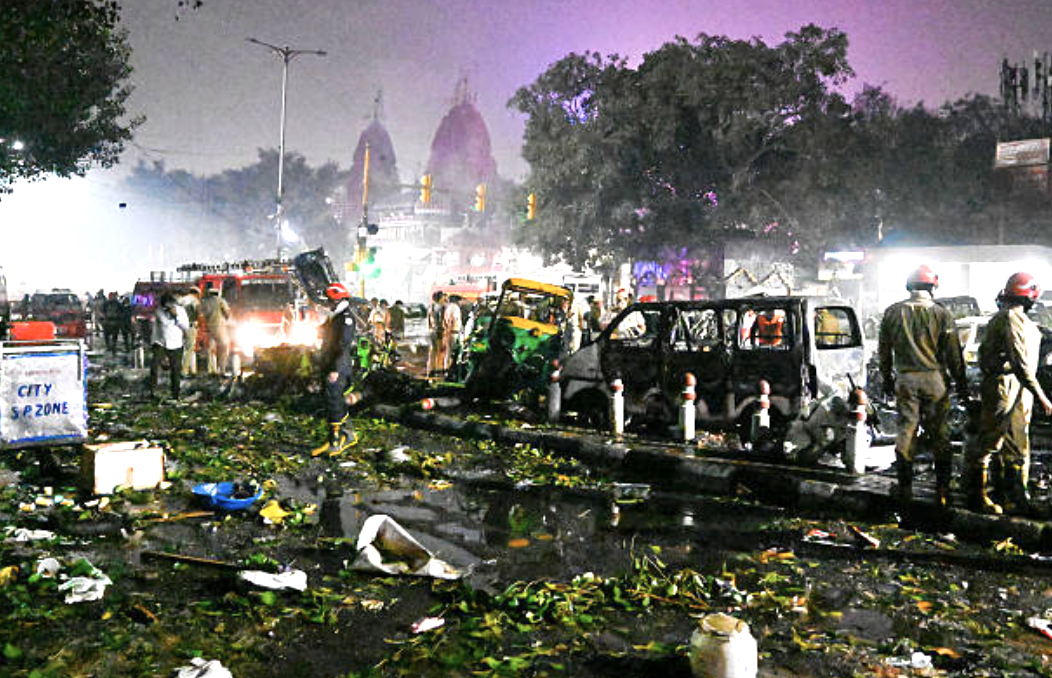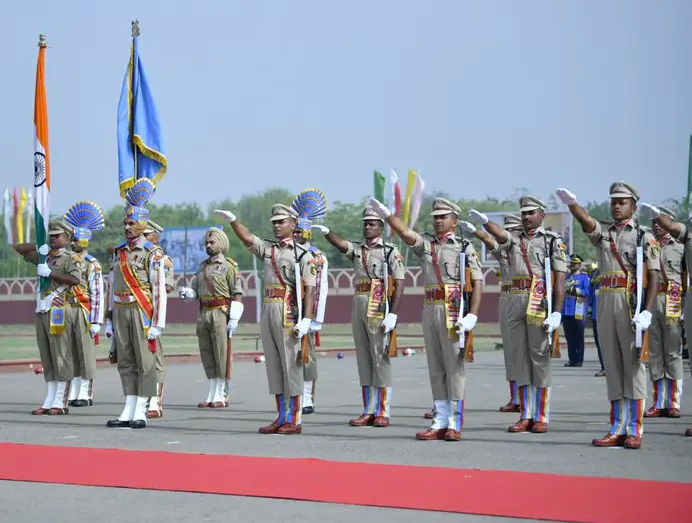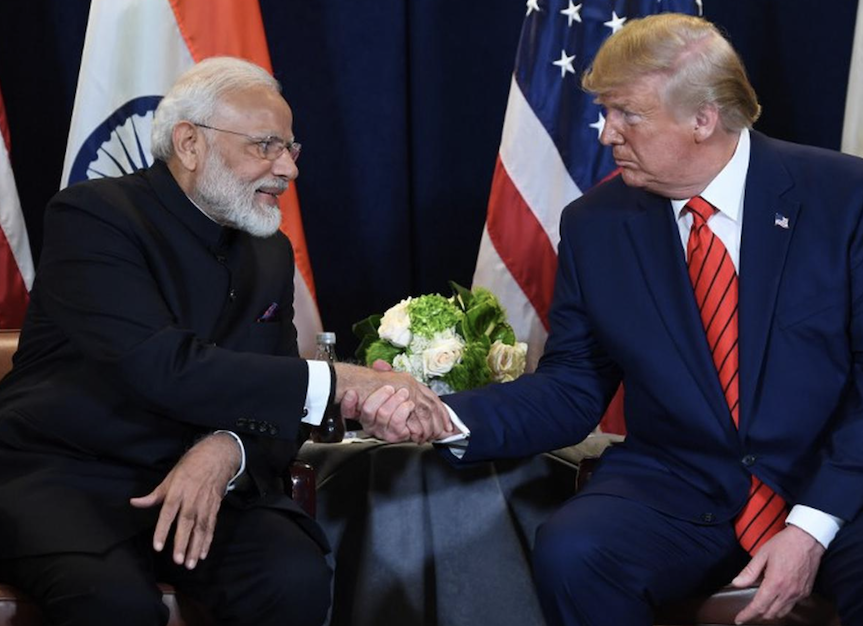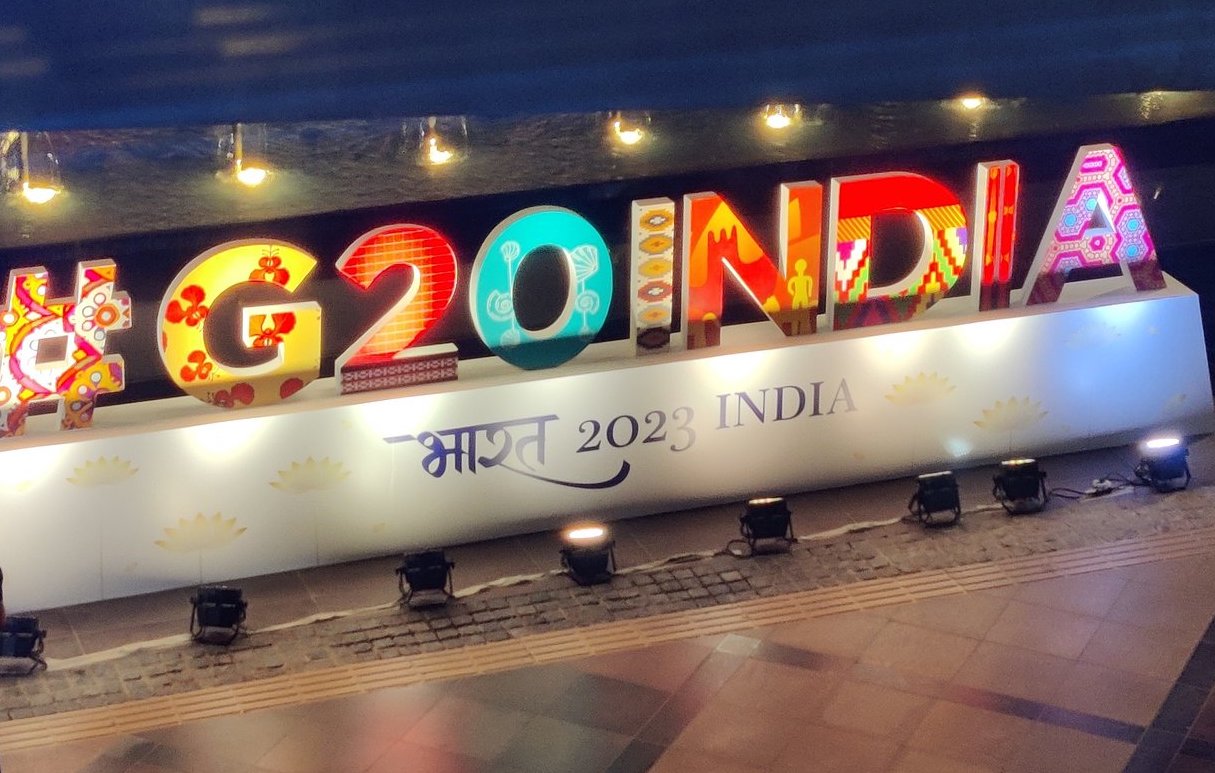
The Group of Twenty, commonly known as the G20, has emerged as a critical platform for global economic governance and policy coordination. Comprising the world’s major economies, the G20’s mandate extends beyond just economic matters to encompass a wide range of global challenges, from climate change and sustainable development to international security and public health. The rotating presidency of the G20, a position held by member states on a yearly basis, plays a pivotal role in setting the agenda and guiding discussions on these pressing issues.
In this context, India’s G20 presidency during 2022-23 stands out as a significant chapter in the organization’s history. As one of the world’s fastest-growing economies and a country with immense geopolitical influence, India assumed the G20 presidency with high expectations and a unique set of opportunities and challenges. Over the course of its tenure, India navigated the complexities of global diplomacy, economic recovery in the wake of the COVID-19 pandemic, and the pursuit of sustainable development goals.
This article aims to delve into the key takeaways from India’s G20 presidency, offering a comprehensive analysis of the country’s leadership, accomplishments, and the enduring impact it has left on the global stage. By examining the priorities set by India, the policies proposed and implemented, as well as the outcomes achieved during its presidency, we seek to shed light on the broader implications for global governance, cooperation, and the evolving role of emerging economies in shaping the international agenda.
The G20 is composed of 19 nations along with the European Union, which collectively include Argentina, Australia, Brazil, Canada, China, France, Germany, India, Indonesia, Italy, Japan, Mexico, Russia, Saudi Arabia, South Africa, South Korea, Turkey, the United Kingdom, and the United States. The European Union is represented by the European Commission and the European Central Bank.
The G20’s core objectives include:
a. Financial stability by preventing and mitigating financial crises through coordinated policies and regulatory measures.
b. Economic growth by promoting sustainable and balanced economic growth.
c. Global economic governance by enhancing the effectiveness of international financial institutions and improving global economic governance.
To meet its objectives, the G20 regularly engages with other international organizations, like the International Monetary Fund (IMF) and the World Bank. It also seeks input from non-governmental organizations, businesses, and civil society through engagement groups, such as the Business 20 (B20), Civil 20 (C20), and Youth 20 (Y20).
Read also: G20 to Geo20: India’s push for a more inclusive world gains momentum
India’s G20 presidency and its key takeaways
India has been an active participant in the G20, contributing to discussions on global economic challenges, financial stability, and sustainable development. Its role has evolved from the immediate response to the financial crisis to addressing long-term global issues like climate change and inclusive growth. India has also used the G20 platform to engage with other member countries on bilateral and multilateral matters of mutual interest.
The presidency with India in 2022-23 has proved very beneficial and India has successfully made statements that were valued and respected not only by other member states but also globally by other countries.
The G20 Summit, held over two days in New Delhi, has concluded with notable accomplishments and announcements that underscore India's global leadership in addressing critical global challenges. Hosted by Prime Minister Narendra Modi, the summit witnessed collaborations, agreements, and commitments across various sectors, reflecting the shared commitment of the world to tackle pressing issues.
1. Economic partnerships and trade agreements: India and Brazil, under President Lula's leadership, have strengthened their economic ties by expanding the India-MERCOSUR Preferential Trade Agreement. This move highlights the importance of global economic cooperation and opens doors for increased trade between these regions. India also handed over the G20 presidency to Brazil and jointly announced the India-Middle East-Europe economic corridor with several other nations to promote economic growth and counter China's Belt and Road Initiative.
2. Multilateral development banks (MDBs) and financial inclusion: The summit made significant progress in strengthening MDBs and promoting financial inclusion. Finance Minister Nirmala Sitharaman highlighted the unanimous endorsement of a comprehensive financial inclusion action plan for the next two fiscal years. Discussions also focused on reforming MDBs and resolving debt issues in countries like Ghana, Zambia, Ethiopia, and Sri Lanka.
3. Crypto assets and regulation: In the realm of cryptocurrency, the G20 endorsed approaches from the International Monetary Fund (IMF) and the Financial Stability Board (FSB). Discussions are ongoing among central bank governors and finance ministers, with India advocating for a common template.
4. Bilateral agreements: India and Bangladesh signed three memorandums of understanding (MoUs) to enhance cooperation in various domains, including digital payments, cultural exchange, and agricultural research.
5. Technology and defence partnership: Prime Minister Modi and President Biden emphasized the importance of technology in strengthening the India-US strategic partnership. They praised ongoing efforts through the India-US initiative on Critical and Emerging Technology (iCET) and highlighted support for building resilient global semiconductor supply chains.
6. Resolution of trade disputes: India and the United States resolved their last trade dispute at the World Trade Organization (WTO), marking the conclusion of all pending trade disputes between the two nations.
7. Deepening defence ties with partner nations: Modi and Biden reaffirmed their commitment to deepening the bilateral defence partnership, including procurement agreements for remotely piloted aircraft and jet engines from the US.
The G20 Summit at New Delhi has produced noteworthy results in various areas encompassing economics, finance, technology, and diplomacy. These achievements highlight the importance of international cooperation in addressing global challenges and shaping a prosperous and secure future for all nations.
Additional highlights:
8. Strong, sustainable, balanced, and inclusive growth: The G20 reaffirmed its commitment to fair competition, universal social protection coverage, and macro policy cooperation in support of the 2030 Agenda for Sustainable Development.
9. Accelerating progress on sustainable development goals: The G20 emphasized the role of digital transformation, AI, and data in advancing toward the sustainable development goals, along with a focus on global food security and foundational learning.
10. Green development pact for a sustainable future: Leaders approved a green development pact focused on financing, reducing greenhouse gas emissions, biofuel alliances, sustainable development, and eliminating plastic pollution.
11. Multilateral institutions for the 21st century: Reforms for stronger Multilateral Development Banks (MDBs) and international development financing were discussed.
12.Technological transformation and digital public Infrastructure: The concept of "digital public infrastructure" and its importance in societal-level service delivery were highlighted.
13.International taxation: Efforts to create a contemporary international tax system were reaffirmed.
14.Gender equality and empowerment: The G20 reiterated the importance of empowering women and girls in achieving the 2030 Agenda.
15. Countering terrorism and money laundering: Leaders denounced terrorism in all forms and supported the resource needs of organizations combating terrorism and money laundering.
16.Creating a more inclusive world: The G20 emphasized inclusivity, global cooperation, and efforts to connect researchers and institutions. A global rail and port agreement connecting the Middle East and South Asia was unveiled. India and the UK pledged to resolve outstanding issues in a free trade agreement.
17. Freedom of religion and expression: The summit stressed the interdependence and role of rights like freedom of religion, expression, assembly, and association in countering intolerance and discrimination.
India’s global stand and effect on foreign policy
India's accomplishments in multilateral events like the G20 highlight its elevated status and increased influence in various international institutions and collaborative platforms. This reflects the growing presence of Indians in diverse fields worldwide, contributing to global well-being. There is a widespread acknowledgment that India plays a positive global role, contributing to regional and global stability, peace, and prosperity.
India is on the brink of a strategic opportunity. This year, it is predicted to have the fastest-growing economy among developed nations, surpassing even China. India might also benefit from the US-China trade tensions, as countries seek to diversify their supply chains in critical and emerging technologies away from China.
The 18th G20 presidency has already indicated the significance of climate policies and digital public infrastructure (DPI) agendas. DPI, in particular, could offer a cost-effective alternative to China’s “Belt-Road Initiative”.
Furthermore, India is navigating a delicate balance between advocating for a more equitable distribution of global power and avoiding the perception of supporting anti-Western causes. This is challenging given the strained relationships between major powers, including Russia and the west, as well as growing tensions between the US and China.
The absence of Chinese President Xi Jinping has disrupted the summit proceedings, and addressing the Ukraine conflict has proven challenging, with resistance from Beijing and Moscow. The exclusion of Ukrainian President Zelenskyy from the summit underscores India's focus on economic issues.
Read also: Xi’s absence at New Delhi G20 should mark changes in India’s China policy
India’s efforts to promote a greater role for the Global South face geopolitical challenges. It aims to advocate for a fairer global power balance while avoiding alignment with an anti-western agenda. However, this inclusive approach, reflected in India’s G20 theme of “Vasudhaiva Kutumbakam” (One Earth, One Family, One Future), faces challenges in an increasingly polarized international system.
India risks growing apart from forums with explicitly anti-Western compositions, such as the Shanghai Cooperation Organization (SCO) and even BRICS, which expanded its membership this year. Both groups now include members with anti-Western worldviews like Russia, China, and Iran. Meanwhile, India seeks closer alignment with the West through platforms like the Quad, Minerals Security Partnership, and EU-India Trade and Technology Council.
In conclusion, India's G20 presidency marks a significant milestone for this emerging global power. However, it also underscores the complexities India faces in maintaining strategic autonomy in an increasingly polarized world.
Conclusion
The goal of forming the G20 is to foster an environment that promotes equitable global growth and development. They bring together the world's most powerful economies, both developed and emerging, to discuss global financial and economic stability. However, to address the current situation, governments must develop ways to aid the disadvantaged without increasing debt levels. The requirement to regularly monitor external dangers would be a significant challenge in this regard.
Disclaimer: The views expressed in the article are the author’s own and don’t necessarily reflect the views of India Sentinels.
Follow us on social media for quick updates, new photos, videos, and more.
Twitter: https://twitter.com/indiasentinels
Facebook: https://facebook.com/indiasentinels
Instagram: https://instagram.com/indiasentinels
YouTube: https://youtube.com/indiasentinels
© India Sentinels 2023-24


